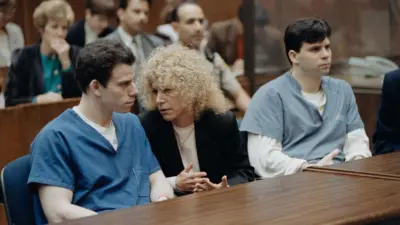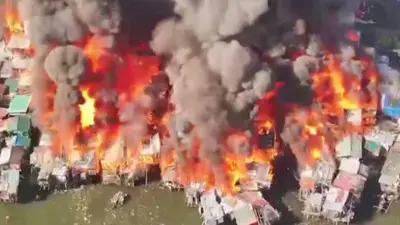We've updated our Privacy and Cookies Policy
We've made some important changes to our Privacy and Cookies Policy and we want you to know what this means for you and your data.
Public bodies 'spending millions to snoop'
A wide range of public bodies are using private detectives to do their surveillance work, with many using security firms to dodge legal restrictions, a campaign group says.
More than £3.9 million has been spent by public bodies in the last two years on paying private investigators, according to Big Brother Watch.
Among the public organisations is the Department for Transport.
It said third parties were sometimes necessary to investigate fraud.
There has been a crackdown in recent years on surveillance work by local councils, who must now seek a magistrate's warrant if they wish to carry out such investigations.
However, Big Brother Watch says some public bodies may be sidestepping that restriction by sub-contracting the work to private security companies.
In a Freedom of Information Request, it found that 29 public bodies had employed outside companies to do surveillance work in the last two years.
'Not fit-for-purpose'
As well as the DfT, this included 27 councils and one public authority, who all paid private firms to undertake surveillance using powers under the Regulation of Investigatory Powers Act (Ripa).
Four councils used private investigators to monitor their own staff, while most of the £3.9 million spent was on one contract for Fishery Patrol flights.
However, Big Brother Watch says some 14 organisations - 10 councils and four public authorities - paid private firms to undertake surveillance that was not covered by Ripa.
Its director, Nick Pickles, said the revelations proved that surveillance laws were "not fit for purpose".
"The government has acted to control surveillance by local councils but this research shows more than ever before public bodies are using private detectives to do their snooping," he said.
"The law is at breaking point and public bodies shouldn't be able to dodge the legal checks on them by using private investigators."
Communities secretary Eric Pickles said the government had clamped down on the overuse and abuse of surveillance powers by town halls.
"Such powers can only be used for serious crimes, and require a magistrates' warrant. It is totally unacceptable if councils are trying to sidestep these important new checks and they should be held to account for acting outside the law," he said.
A Department for Transport spokeswoman said: "The department and its executive agencies take potential fraud very seriously and it is sometimes necessary to involve a third party to investigate such claims in order to protect taxpayers' money.
"For example, on occasions the Highways Agency and the Driving Standards Agency have commissioned private investigators in cases of driving test fraud and potentially fraudulent personal injury claims."
Top Stories
More to explore
Most read
Content is not available








